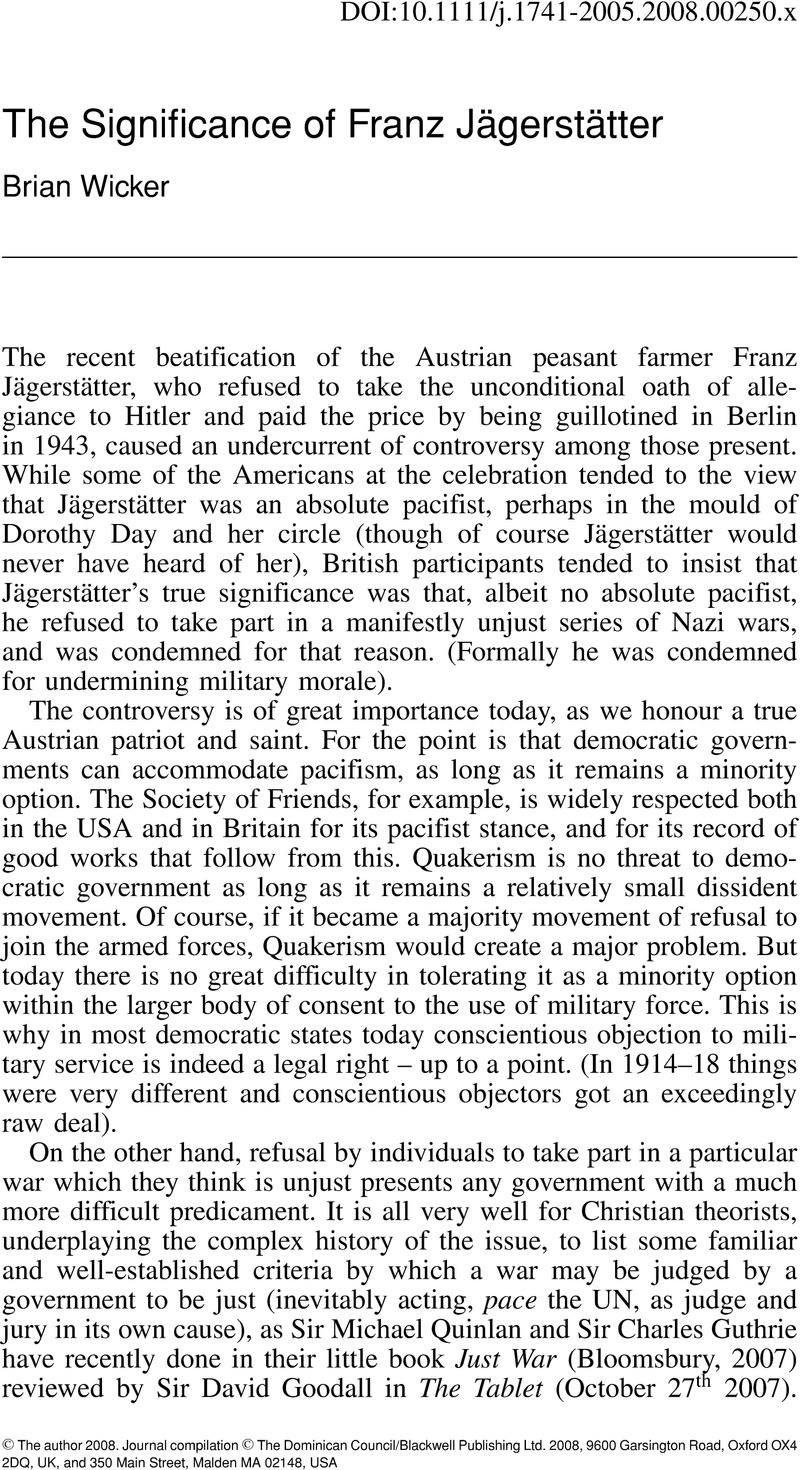Crossref Citations
This article has been cited by the following publications. This list is generated based on data provided by Crossref.
Green, Chris E. W.
2022.
Painting a true Christ: Art as collaboration with the creator spirit.
Journal of Pentecostal and Charismatic Christianity,
Vol. 42,
Issue. 1,
p.
58.
La Caze, Marguerite
and
Zolkos, Magdalena
2025.
The Ethics of Refusal in Terrence Malick’s A Hidden Life.
Film-Philosophy,
Vol. 29,
Issue. 1,
p.
72.



